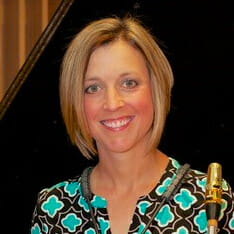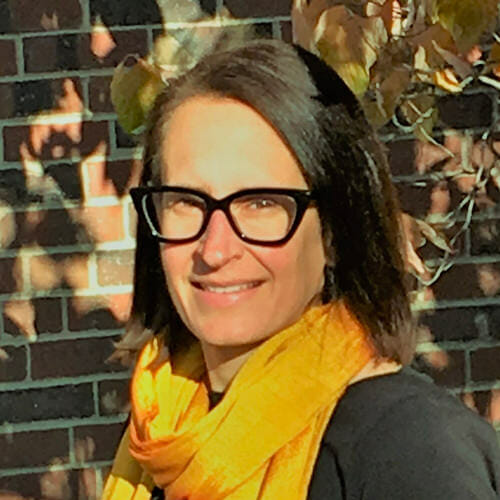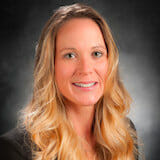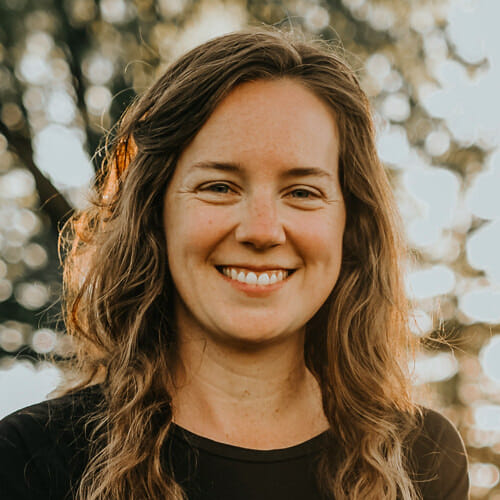
Co-Authored by Faculty and Staff at the University of Idaho
Vanessa Sielert, Professor and Director, Lionel Hampton School of Music
Katherine Himes, Director, McClure Center for Public Policy Research
Erin Chapman, Clinical Associate Professor, School of Family and Consumer Sciences
Kathryn Schiffelbein, Director of Diversity, Inclusion and Outreach, College of Engineering
Starting a program of any type can be daunting. Doing so with little to no experience and resources may seem impossible. Yet the importance of this work and a shared vision brought us together to create a community for women to connect and thrive. We built the Athena Women’s Mentorship Program in autumn 2018 with the support of Athena, the professional women’s organization at the University of Idaho.
The intent of the Athena Mentorship Program is to promote and facilitate mentorship for women and/or female-identifying staff and faculty at all University of Idaho campuses. The program graduated its second cohort in December 2020 and launched its third cohort in January 2021, fully online.
The program follows a calendar year schedule, provides monthly formal gatherings and bi-weekly informal coffee chats for mentees with mentees and mentors with mentors, and requires that mentorship partners meet monthly based on their personal schedules. The year begins with a half-day retreat and concludes with a celebration certificate and pinning ceremony.
As the program facilitators, we have learned much during the first two years of the program’s life and have sought continuous improvement throughout, applying the lessons we have learned after each cohort to improve the next. Through this article, we wish to share our experiences with the goal of inspiring other institutions to forge ahead in their quest to develop women leaders within their organizations.
Step 1: Asking for institutional support
The Athena Professional Women’s Organization (Athena) at the University of Idaho, founded in 1987, promotes an inclusive and equitable climate for professional women at the University. Athena had a longstanding aspirational initiative to launch and support a women’s professional mentorship program. In the years leading up to the formation of the current program, Athena made several attempts to actualize this initiative in the form of working groups or one-off mentee-mentor pairings. Notably, these attempts saw high engagement among those identifying as needing or wanting mentoring; however, it was often difficult to find willing and available mentors to pair with these faculty and staff members, who were typically less experienced and had less tenure at the University.
In 2016 and early 2017, an iteration of a mentoring working group held a handful of meetings that were attended by early career faculty and staff. At these meetings, conversations focused on what was lacking in terms of a culture around mentoring at the University. Without solid direction, mentor experience, and institutional knowledge—and, lacking clout and buy-in from upper administration—there was little traction to begin a formal mentoring program. These working group members brought energetic enthusiasm and discussions of “what if” scenarios for an aspirational future of an improved mentoring culture. If anything, the working group provided strong evidence of need.
In the spring of 2017, the President’s Office asked Professor of Music Vanessa Sielert to participate in the restructuring of the American Council on Education (ACE) Idaho Women’s Network, which had been dormant for many years at the time. Athena adopted the Idaho ACE Women’s Network under its umbrella and welcomed Sielert as an additional board member. In this capacity, Sielert—in partnership with Athena current and former board members—was able to successfully lead efforts to establish presidential funding for the mentoring program.
Step 2: Developing cross-campus & cross-disciplinary relationships
A series of brainstorming sessions ensued shortly thereafter to bring the program to life. It was important to us to establish a general framework but remain flexible about the details, allowing the finger points to evolve in real time. We decided on the following principles to start:
- Equal number of faculty and staff participants
- Cohort size limited to 20 individuals
- Mentees would be women and/or female identifying
- Mentors would be of any gender
- Both mentees and mentors should complete a short application
- Partnerships should be created staff-to-staff and faculty-to-faculty
- Partnerships should be made across disciplines to provide a “safe space” for people to speak freely
- To move away from a “faculty centric” model, the program should follow a calendar year cycle rather than adhering to the academic calendar.
With these principles in place, we sent out an initial broad call for applications. Given the strong central support that now existed for the program—both financial and in concept—there was an enthusiastic response for participation. We then sat down together to map out partnerships for the first cohort.
To our pleasant surprise, partnerships seemed to match naturally. In one example, a new staff member who had moved all around the country and was now ready to settle into one geographic area paired easily with a locally raised, long-time University employee who had worked her way through many parts of the organization. Similarly, a recently retired dean and longtime leader within Athena paired well with a new assistant professor who had just started in her home department.
Step 3: Creating community between staff and faculty
We structured the program around five formal group retreats and one final end-of-year celebration. Each of the five large sessions focused on broad overviews of the mentorship process and fostered open communication and dialogue between mentee-mentor partners. At the retreats, we employed a variety of methods to stimulate conversation between partners, including a common read for mentees and a common read for mentors.
In addition to these group retreats, partners individually developed a schedule of private meetings. We did not mandate the frequency or method of meeting: partners were free to design their meetings based on their communication preferences and on a schedule that best met their needs.
As a way to further support participants, we decided to host biweekly, informal coffee chats. We set up two separate chats: one for mentees and one for mentors. One faculty and one staff facilitator took on the joint responsibility of hosting each. The chats varied across days and times and included all who were available. The chats ultimately proved to be helpful in allowing both mentees and mentors to speak candidly about successes and challenges in their partnerships. Importantly, they also allowed a stronger bond to take shape among the entire cohort.
Finally, we planned a casual “graduation” ceremony at the end of the calendar year. Participants received certificates of completion and a golden lapel pin to commemorate their experience. We also encouraged partners to write cards to one another containing reflections on the time they spent together to exchange at the event.
Step 4: Acquiring and adjusting based on formative feedback
Inherent in higher education professions is a sense of continuous growth and improvement. Our program has transformed and adjusted over time both naturally and due to the unforeseeable current state of online interaction. Here are a few concrete ways that the program has adapted due to a combination of formal surveys, informal surveys, and circumstance:
- Increased connection with Athena, promoting their Conversations of Care, social hours, and the Women of the Year event;
- Moved formal large-group, in-person meetings to shorter, online meetings with breakout sessions;
- Moved informal coffee chats to a hybrid model of in-person, on campus, socially distanced coffee hours with an ability to check in online;
- Added socially distanced lunchtime walks as a way to disconnect from the screen and reconnect with each other; and
- Changed recruitment practices to be inclusive of more departments and units across campus as well as other campus centers within the state.
Now, at present moment—in time for the recent launch of our third cohort—we are focusing on four main goals for the upcoming year: (1) Increase participation from University of Idaho locations across the state; (2) Develop a yearlong engagement guide (compared to a semester-by-semester plan); (3) Increase connection with the constellation of related activities across Idaho and the region; and (4) Require a formal commitment to online engagement and attendance from all participants.
In gathering feedback and iterating and adjusting over time, it has been important for us to keep in mind that each cohort that moves through the program is unique and has a different identity. Part of our role as facilitators is to provide enough structure for the participants to form community, develop professionally, and feel supported, but the program also has to make space for relationships to form and develop organically in their own fashion. While not every pairing we made has been a perfect match, there were still numerous opportunities to gather and learn from others in each case such that everyone left the program having grown in some way.
Lessons learned: Advice for other institutions in creating your own mentorship program
Undoubtedly there are many lessons we have learned through this process, but two stand out foremost among them all:
- Sometimes, building the plane as you fly is the only solution to a challenge at hand.
If you wait for all of the pieces to fall into place before you get started, you will never get off the ground. We went into our program with a basic outline and idea of what we wanted to do and were okay with formalizing and finalizing the details and finer points along the way. We also knew up front that we’d make some missteps and would have to adjust later on, and that too was okay: we weren’t afraid of making mistakes. This approach has worked well for us and we’d encourage others to adopt the same. - Don’t go it alone.
Any one individual among our group of four facilitators would not have been able to start this program alone and easily could have been dissuaded from pushing ahead, if not for the support and encouragement of the other three. Our advice to others similarly would be not to go it alone.
If you are thinking of starting a mentorship program in your institution, then we encourage you to stop thinking and start doing. Find a few like-minded friends, come up with your initial plan, and do not be afraid to ask for help from central administration to realize it.
Some other key pieces of advice as you begin:
- Consider who should participate in the program. For example, are you interested in supporting new faculty? New staff? Both? Would you like to mentor women and people identifying as women? Who should serve as mentors?
- Determine the best configuration for the program, timing-wise. Will you follow the calendar year or the academic year?
- Reach out to people who lead existing mentorship programs and ask questions. This way, you’ll have the benefit of others’ wisdom and experience up front and your program will be better for it.
- Gather resources such as readings, assessments, and more. Use these resources to center the program.
- Know that there is no right or wrong way! You will make a tremendous difference and improve organization culture.
- Hold a year-end celebration. This helps round out the program for participants, honors the experience they have had, and provides a sense of closure.
- Keep in mind the importance of informal conversations and encouraging peer-collegial networks. Program participants expressed appreciation for the connections made with other mentees and mentors, respectively, in these settings.
- Know that it is okay to show your vulnerability as a facilitator. Nobody owns the corner on the market of mentorship. We are all learning together.
In short, have confidence that the investment you make in your mentorship program will return many times over. The benefits will far outweigh any questions, hesitation, or second-guessing that you may be doing up front—you need just to get started.
 Vanessa Sielert, Professor and Director, Lionel Hampton School of Music
Vanessa Sielert, Professor and Director, Lionel Hampton School of Music
Vanessa Sielert, DVM, is a Professor and Director of the Lionel Hampton School of Music at the University of Idaho. As a saxophonist, she performs a wide range of groups including symphony orchestras, chamber ensembles, and jazz ensembles and can be heard on her latest recording, duality, released in November 2020. She can be reached by email at: vanessas@uidaho.edu
 Katherine Himes, Director, McClure Center for Public Policy Research
Katherine Himes, Director, McClure Center for Public Policy Research
Katherine E. Himes, Ph.D., is Director of the James A. and Louise McClure Center for Public Policy Research at the University of Idaho. A committed public servant, Katherine’s expertise spans science diplomacy, international development, research capacity-building, science policy, higher education administration, and public policy. She can be contacted by email at: katherinehimes@uidaho.edu
 Erin Chapman, Clinical Associate Professor, School of Family and Consumer Sciences
Erin Chapman, Clinical Associate Professor, School of Family and Consumer Sciences
Erin N. Chapman, Ph.D. is a Clinical Associate Professor of Human Development and Family Studies, and Faculty Associate for Diversity and Inclusion in Teaching and Learning within the Center for Excellence in Teaching and Learning at the University of Idaho. Her scholarly interests include the study of inclusive and positive sexuality education, healthy relationships across the lifespan, and adolescent and emerging adult development, all within a feminist framework. She can be reached by email at: chapman@uidaho.edu
 Kathryn Schiffelbein, Director of Diversity, Inclusion and Outreach, College of Engineering
Kathryn Schiffelbein, Director of Diversity, Inclusion and Outreach, College of Engineering
Kathryn Schiffelbein, Ph.D. is Director of Diversity, Inclusion and Outreach for the College of Engineering at the University of Idaho. She researches and practices organizational health and well-being in her work and community. She can be contacted by email at: kschiffelbein@uidaho.edu

